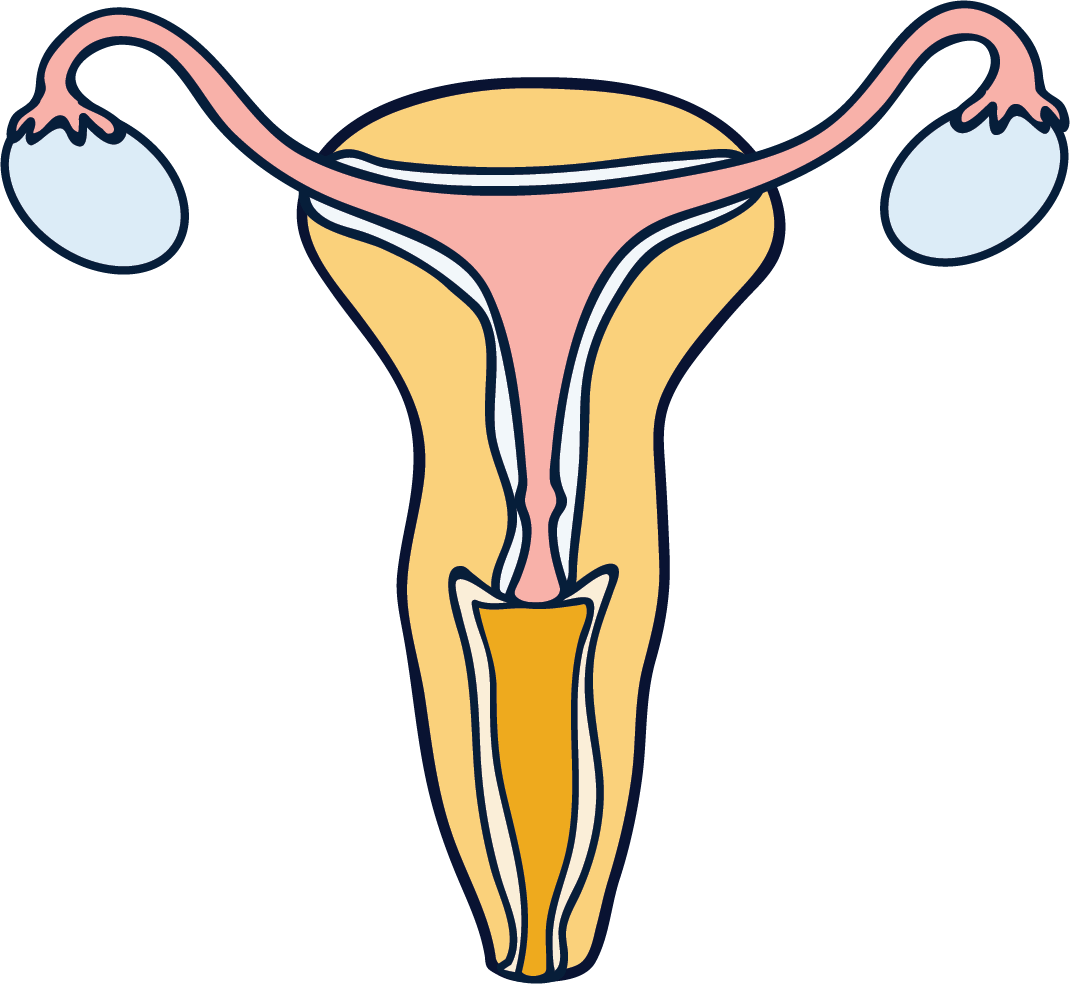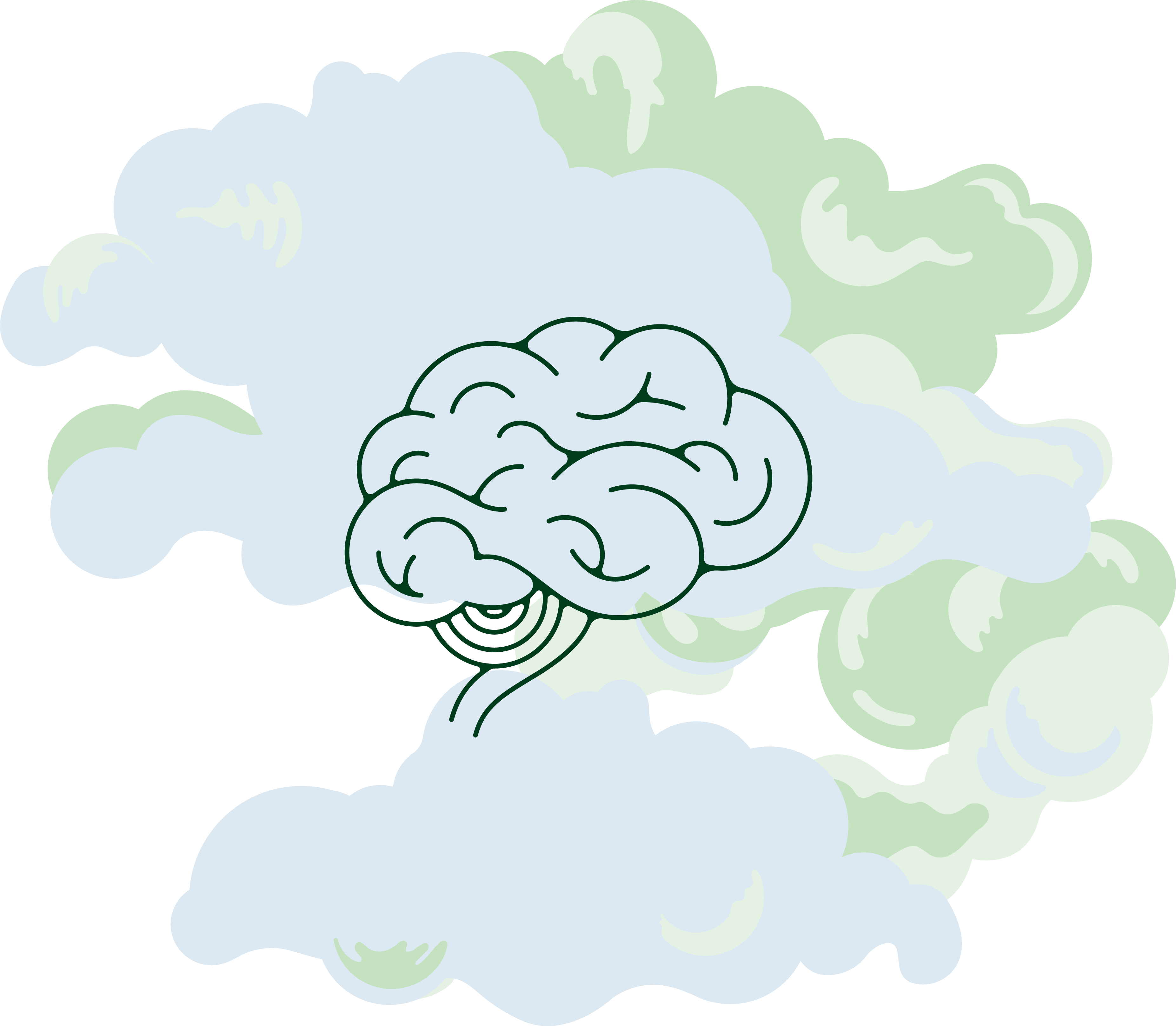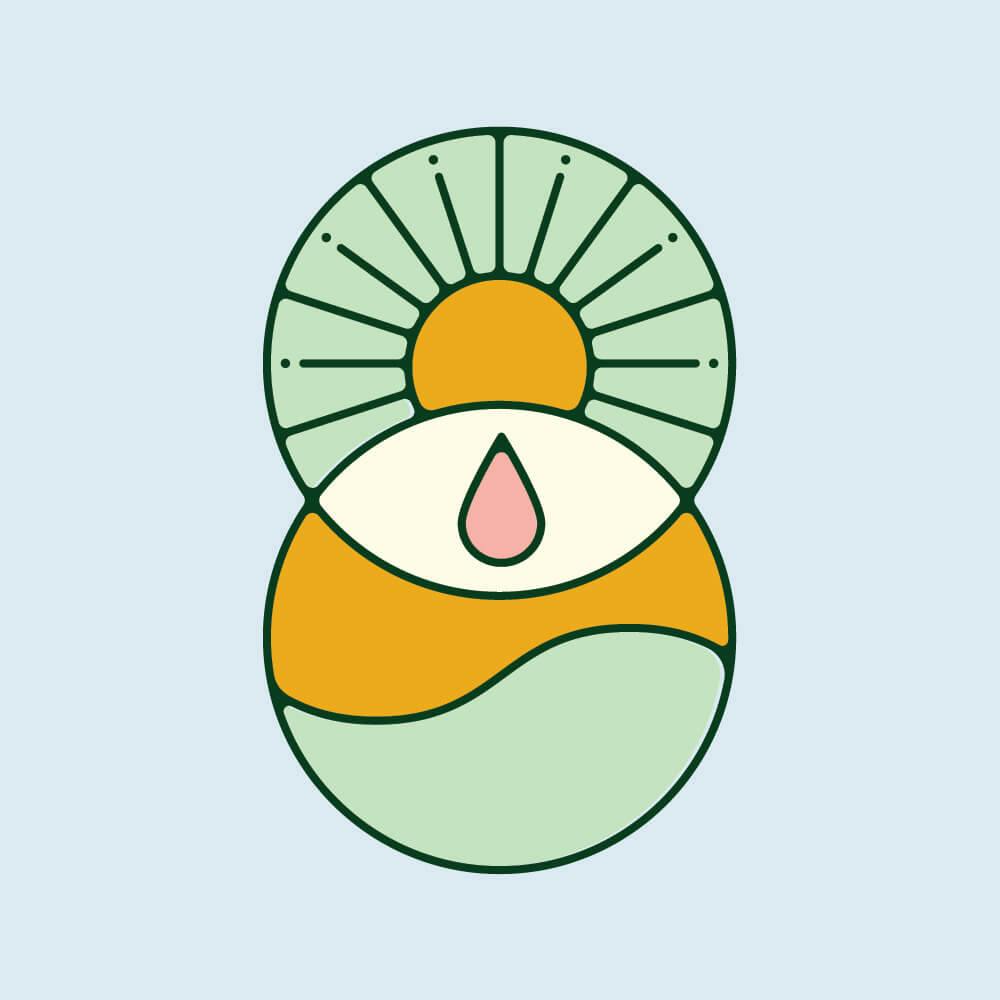Table of contents
Illustrated by Erin Rommel
Depictions of the menopause in the media might finally be more common nowadays, but what about the early and premature menopause?
The average age for a woman to reach in the UK menopause is 51, but more women go through it in their 20s, 30s and 40s than we might think – and rarely are their experiences given air time.
Around 5% of women will undergo early menopause (when it begins between the ages of 40 and 50), while 1% will experience premature ovarian insufficiency (POI), reaching the menopause before they hit 40.
The true figure is likely to be far higher because it’s often misdiagnosed, explains Dr. Hannah Short, a specialist in the menopause, POI and premenstrual disorders.
Signs and symptoms of early menopause
The symptoms of early and premature menopause are similar to those of the natural menopause, which is one reason why GPs often fail to attribute them to the menopause in younger women, thinking they’re “too young”.
“These can include infrequent or no periods, hot flushes, reduced sex drive, vaginal dryness and pain, itching or discomfort during sex, headaches, mood changes, palpitations, joint stiffness, and urinary tract infections,” explains Dr. Heather Currie, consultant gynaecologist and RCOG spokesperson.
Many of these symptoms, like irregular or missed periods, could be caused by any number of reasons and the menopause often won’t be an obvious route for a GP to go down.
What’s more, because “a lot of the symptoms might be psychological, vague and multi-organ focused, women get diagnosed with- and treated for psychological disorders like anxiety and depression rather than early menopause,” says menopause and perimenopause expert Dr. Fatima Khan.
What causes early menopause?

In some women, early menopause or POI is caused by cancer treatments (like chemotherapy or radiotherapy) or the ovaries being removed during an operation for conditions, such as endometriosis or PMDD, for example.
But for about 90% of women, the cause is unknown, says Dr. Short. Genetic problems, autoimmune diseases and infections, such as tuberculosis and mumps, can also cause it. It’s clear a lot more research needs to be conducted.
Sophie Watkins, 35, was put into medical menopause aged 30, followed by surgical menopause at 32, with intense menopause symptoms occurring just two days after a total hysterectomy and bilateral oophorectomy for endometriosis and PMDD.
Her symptoms started at a ferocity she hadn’t expected. “The night sweats and hot flushes were instantaneous. Initially, I was changing my nightie up to five times a night and waking up shivering and soaked through became routine,” she says.
At work, Sophie was exhausted from a lack of sleep and mortified whenever she started sweating during meetings. “It was hard to explain as no one expected a 32-year-old to be going through the menopause. The brain fog and memory loss has made work and home life difficult. If my HRT is low, I struggle to form sentences and frequently forget words, which is embarrassing.”
“
No one expected a 32-year-old to be going through the menopause.
Sophie says her skin and hair have become drier, and her body often feels itchy all over, a symptom known as formication. Vaginal dryness has also resulted in her being “plagued with UTIs and bladder urgency, which can make car journeys or long meetings really difficult.” Topical hormone replacement therapy (HRT) has made a huge difference in this regard, she adds.
The mental health impact of the early menopause and POI can be severe. Along with the psychological and emotional symptoms that come with hormonal changes, many women feel “old before their time” and experience grief and loss, Dr. Short explains. “That's partly because fertility is affected, because most women won't be able to conceive naturally. There’s a 5% chance of conceiving naturally, but it's still pretty low.”
Sophie says the menopause has hugely impacted her mental health. “Due to the brain fog and memory loss, I’ve lost a lot of confidence in the workplace and often feel anxious. And because I’m often very fatigued and low on energy, I feel like I’ve lost my sparkle and often doubt myself.”
The menopause has changed her relationship, too. “I’m a lot more irritable, but on the flip side, we communicate much more which is positive.”

Early menopause diagnosis
Given that a diagnosis can have serious implications on fertility and later health, you should keep track of your symptoms and consult your GP if you think you may be experiencing early or premature menopause.
“Untreated early or premature menopause is associated with an increased risk of osteoporosis and cardiovascular disease, due to reduced oestrogen levels,” Dr. Currie explains.
And don’t give up if you’re not getting anywhere with your GP – see a gynaecologist separately if you can, urges Dr. Khan. “Most gynaecologists won’t miss the diagnosis, especially if they’re dealing with women’s health and menstrual disturbances. This is quite a common issue and they’ll manage it.”
Treatments such as the hormonal contraceptive pill, which has additional contraceptive benefits, and HRT, which doesn’t, are safe and used to alleviate the symptoms and reduce the risk of developing cardiovascular disease and osteoporosis in later life.
Having struggled so much with early menopause, Sophie says she’s realised the importance of reaching out to others in the same position, and asking for help.
“When I couldn’t find a menopause support group in my area, I set one up. Every month I meet with women going through natural or surgical menopause and we get things off our chest. Sometimes we have a cry but mostly we just share our feelings, hints and tips and have a laugh.”
Sophie says the lack of early menopause-specific websites, resources and support can further exacerbate feelings of loneliness, but support and information for those going through early menopause and POI are available. She recommends The Daisy Network for women with POI and the book ‘Me and My Menopausal Vagina’ by Jane Lewis.
Sophie’s plea to others in her shoes is to be kind to yourself. “If you have a few days where you’re irritable or you need some quiet time and want to hide away, try not to beat yourself up. You’re good enough just as you are.”






